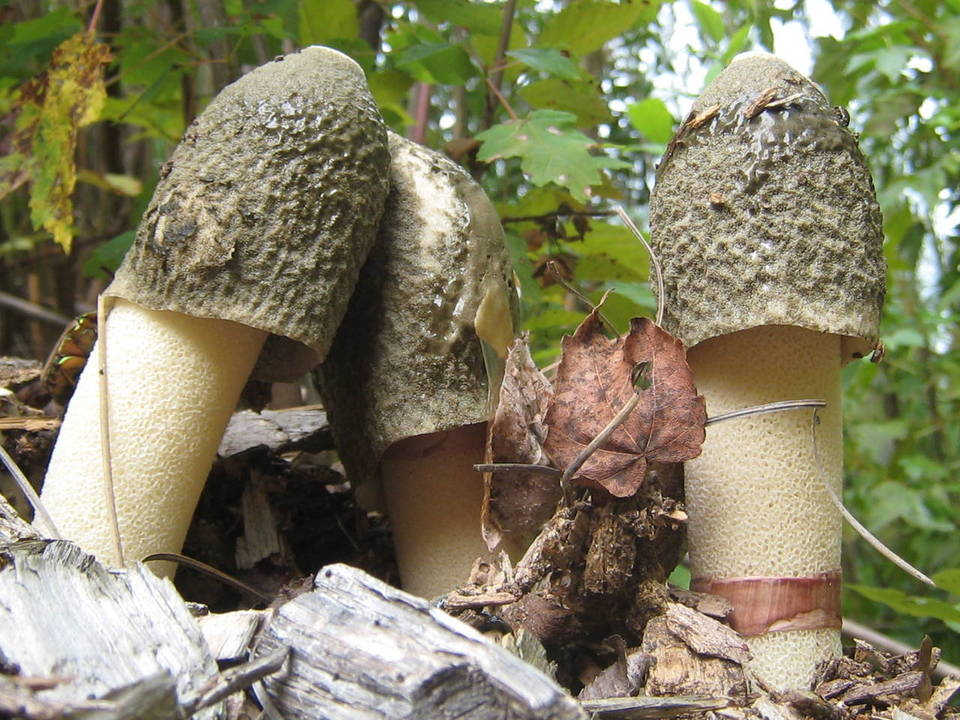
A Mushroom Whose Genus Name Speaks Volumes
Phallus ravenelii - Ravenel's Stinkhorn - takes its role as the mycelium's reproductive organ quite literally.
You may have stumbled upon these mushrooms before - probably in a pile of old mulch. If you have, then I'm sure you remember them vividly, as there is nothing so strange as the first time you find a gregarious bunch of fairly large dildos sticking up from out of the ground all around you.
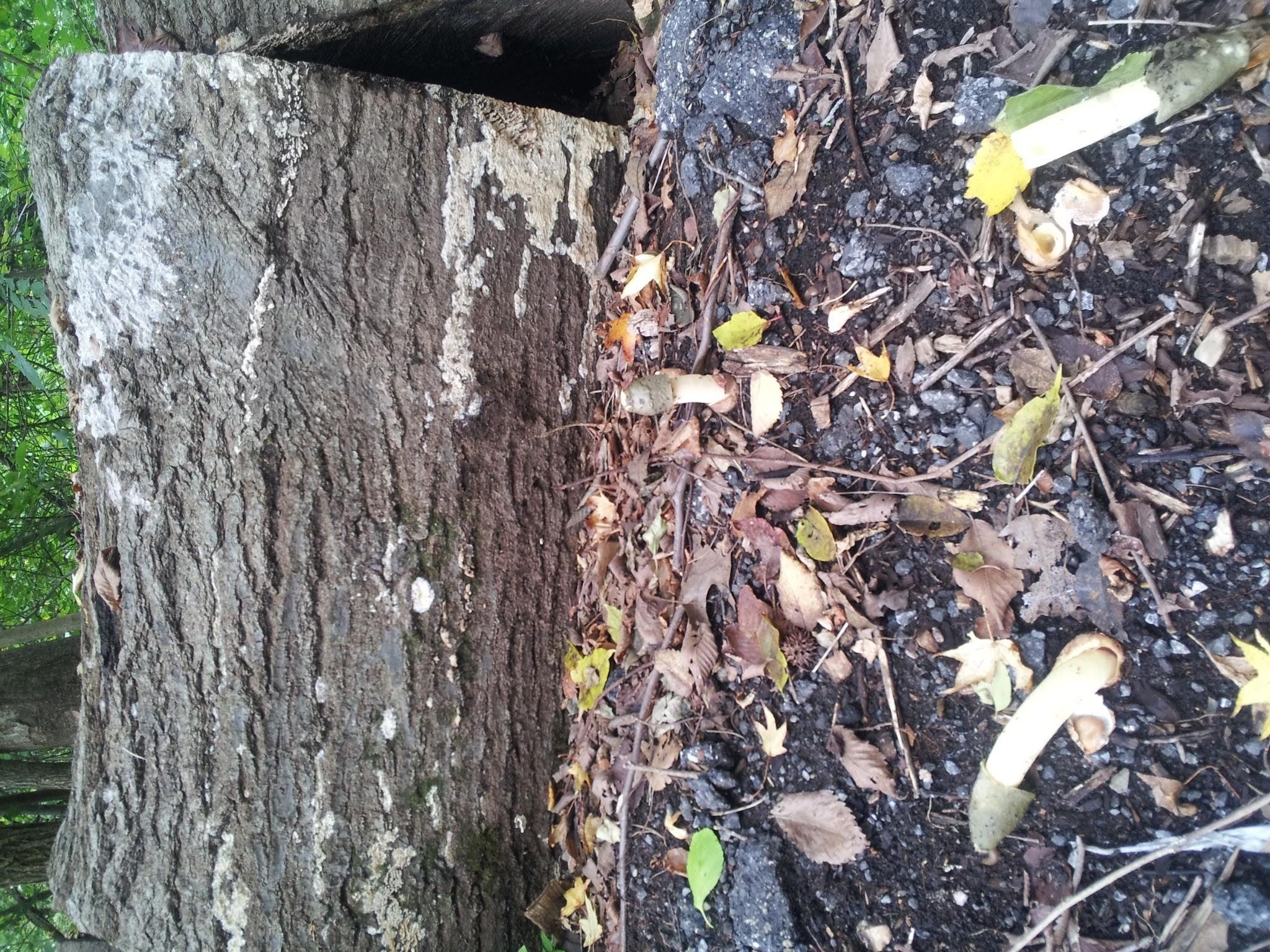
As you can see, this Stinkhorn is not quite like your conventional mushroom. Yes, it has a stem and a cap, but they appear almost to be made out of foam insulation. Take a closer look.
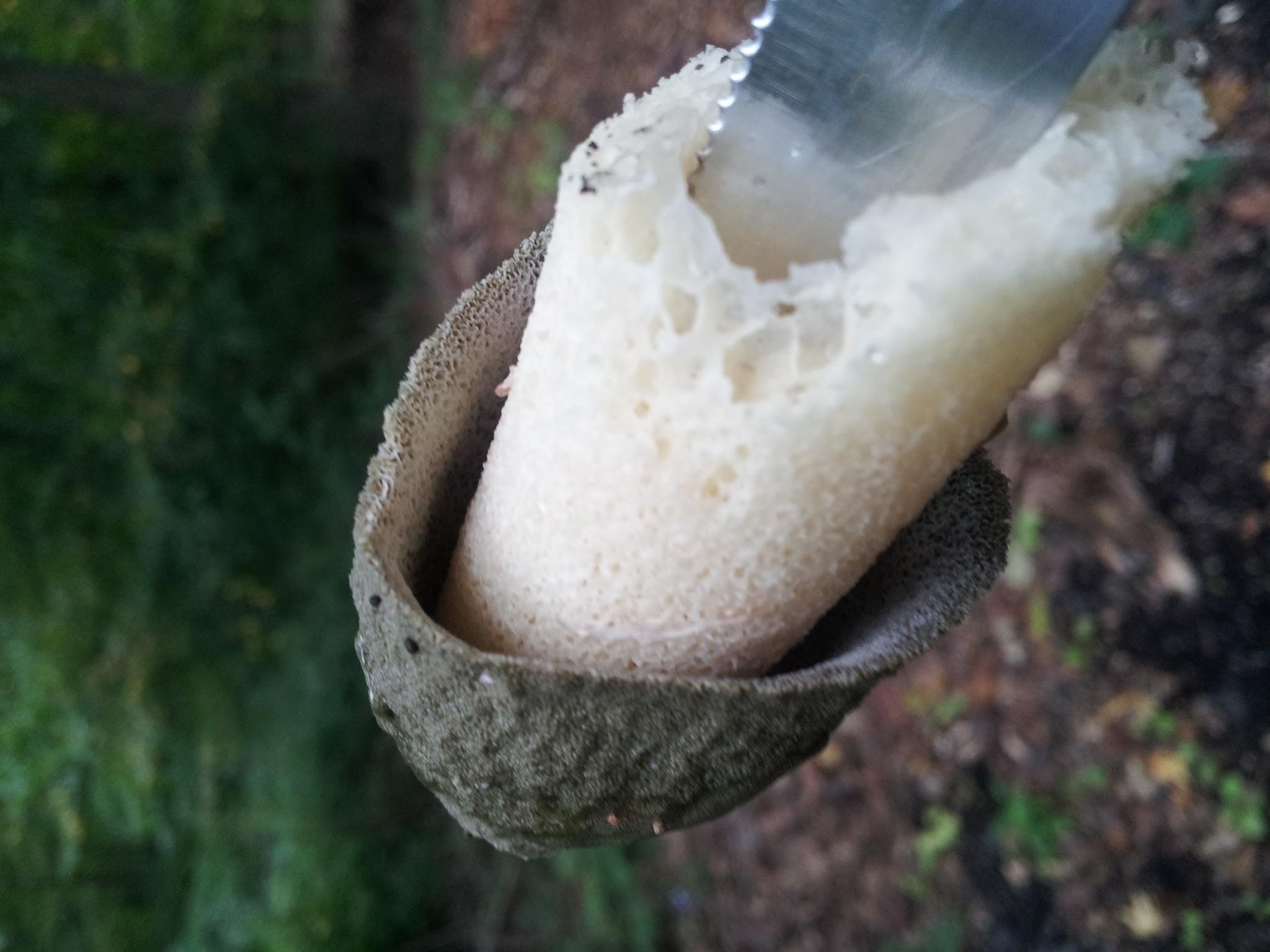
See how porous the stem is?
Look at the cap. If you go back to the reference chart you'll see the cap is conical, but the spore surface is a bit harder to define. This mushroom is an odd ball. It and its cousins get their nickname, Stinkhorn, from the fact that when they pop up they are covered in a thick, stinky slime, infused with spores. Flies love this slime and spread it all over.
As a result a conventional spore print isn't really possible with a stinkhorn.
The Common Stinkhorn stands out not just for it's outrageous phallic shape, but for how it gets to that point.
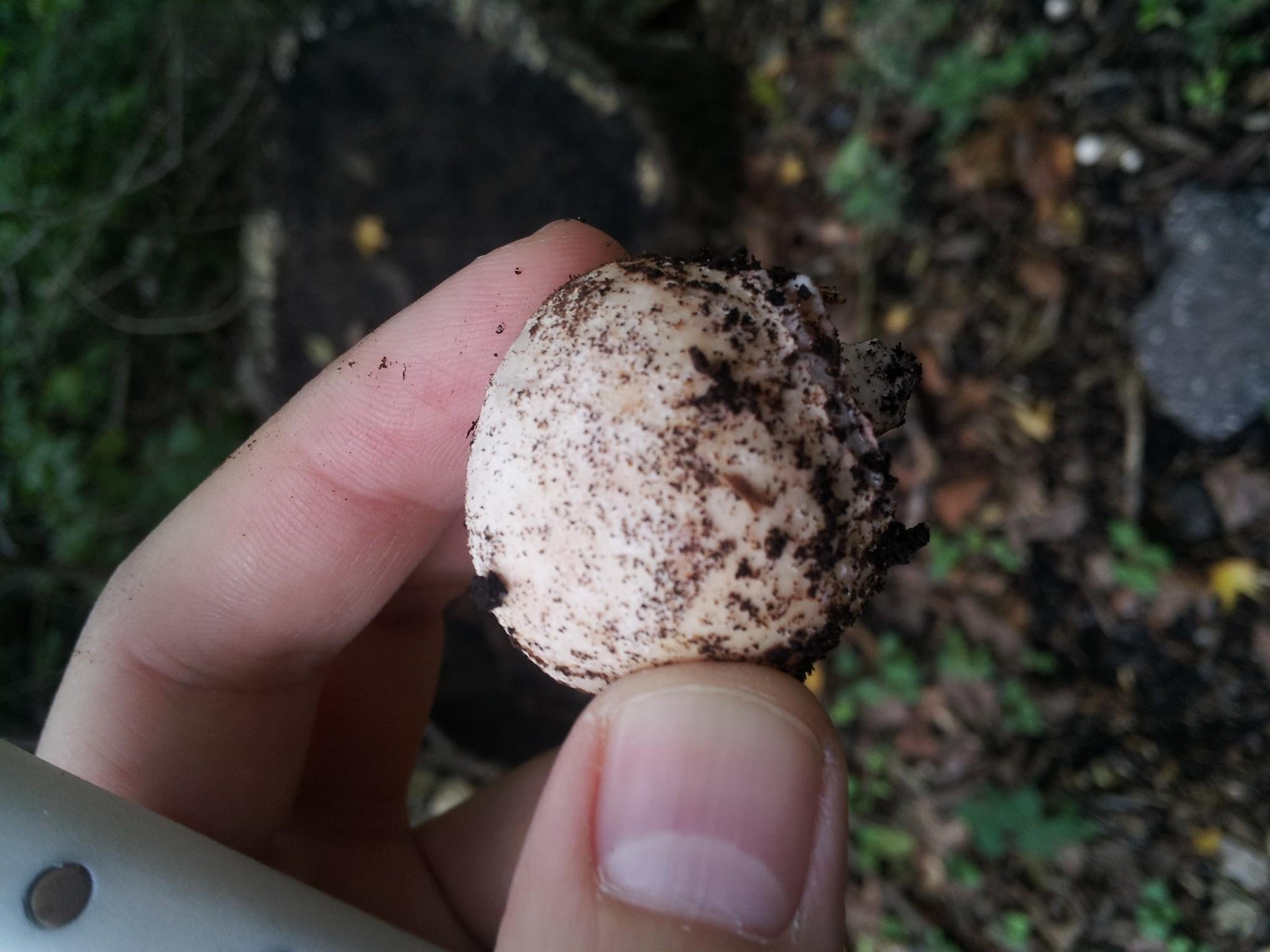
This is the same mushroom in its "egg" or "button" form.
Many mushrooms begin as small buttons in their first development.
You can think of the button quite literally as an egg. Just like an egg, inside of the small button are all the eventual structures of the final mushroom. Look!
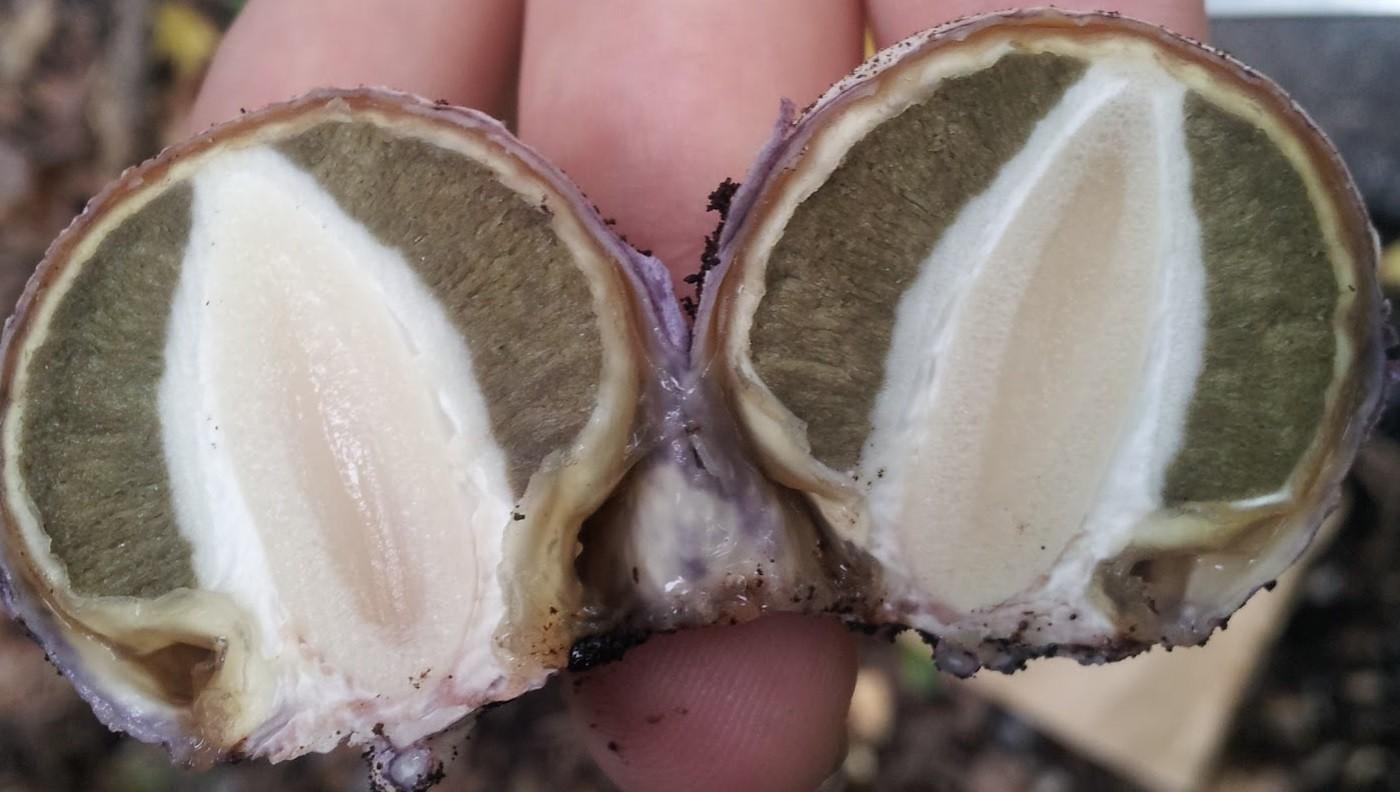
By bifurcating the egg you can now see the future stem and cap all crammed in there.
Not all mushrooms start in an egg - but for the ones that do, cut them open and you will see a similar incipient gill structure growing inside.
In the case of Ravenel's Stinkhorn, when this internal stuff builds to a strong enough pressure... the mushroom literally bursts forth in its mature form
...the mushroom literally bursts forth in its mature form!
Some people think you can eat this mushroom fried up in it's egg form. Both Wikipedia and David Arora, in his master tome "Mushrooms Demystified," mention the claim.
However The Mushroomer urges you not to eat any finds. Personally that goes double for ones that explode into dildos covered in slime, if only for aesthetic reasons.
You can find Ravenel's Stinkhorn all over the eastern part of North American - down into Florida and up into Canada. Further west the stinkhorns switch to another species, known as Phallus impudicus or the Common Stinkhorn.
Wherever you live in North America, keep an eye out on the forest floor or areas covered in wood mulch for this strange fungal creature. Seeing it in person is even more bizarre than looking at pictures. Keep your nose clear because the scent may greet you first.
Cap = Conical - Dark Olive - .6 to 1.6 inches wide, 1.2 to 1.8 inches high. (1.5 to 4, 3 to 4.5 cm)
Stem ("stipe") = bare (no particulate or structures protruding from it) and hollow, 3.9 to 6 inches tall (10-15cm), .6 to 1.2 inches thick(1.5 to 3cm) , white to yellowish in color.
Spore Print = N/A - Spores dispersed by thick stanky slime.
Ecology ("What it grows on") = saprotrophic (meaning it survives off dead organic matter, usually bits of decayed wood in this case)
Distribution = Eastern North America
Edibility = Theoretical in egg form. But repeat after me "we don't eat our finds."
Other Traits = Grows from egg. Egg remains usually visible at the base of the stem. Covered in spore slime which smells bad.
Wikicommons License For Top Picture, user, photo
Youtube Video Uploaded By Factician - May Originally Be Made By Cornell Mycologists
Informational Source 1
Also I cannot recommend "Mushrooms Demystified" Enough.. Yes, it is on the old side now, a lot has changed in mycology - and yes it is best suited for the Western United States. But Arora is an excellent writer, the plates are beautiful and you may just find yourself reading the entries for fun. A great starting point for any mycological hobby!
